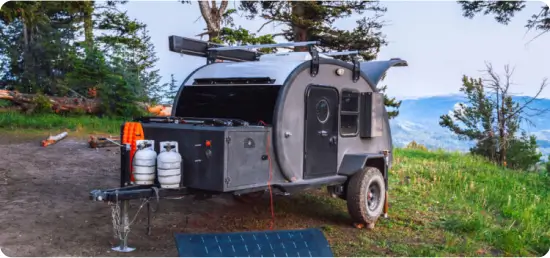Our Trailers
Pick Your Bean
We don’t just have the best teardrop trailer around–we have a whole bunch of Beans! Take a look at the different Beans we offer and find the perfect one to match your outdoor adventures.
The Bean Stock 2.0
This no frills off-road trailer model prioritizes affordability, weight, and off-road capability even with smaller SUVs. This 1,175 lb. rugged trailer is built with a durable one-piece composite shell and can be modulated to each camper’s needs. It’s built with composite honeycomb side walls; and the standard package includes a 2000 lb. Timbren HD suspension. This trailer is the most capable, durable, and refined for your money.
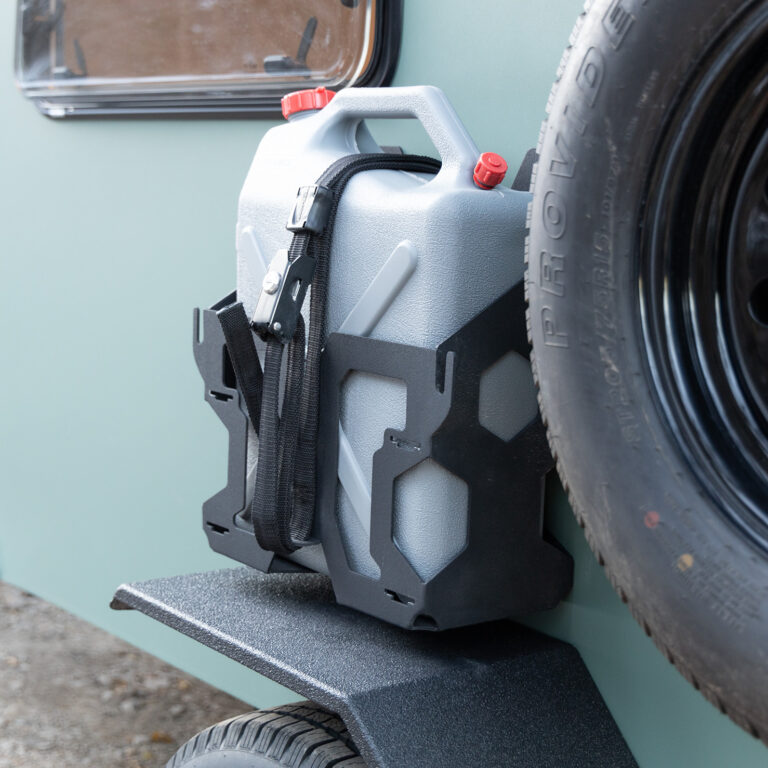
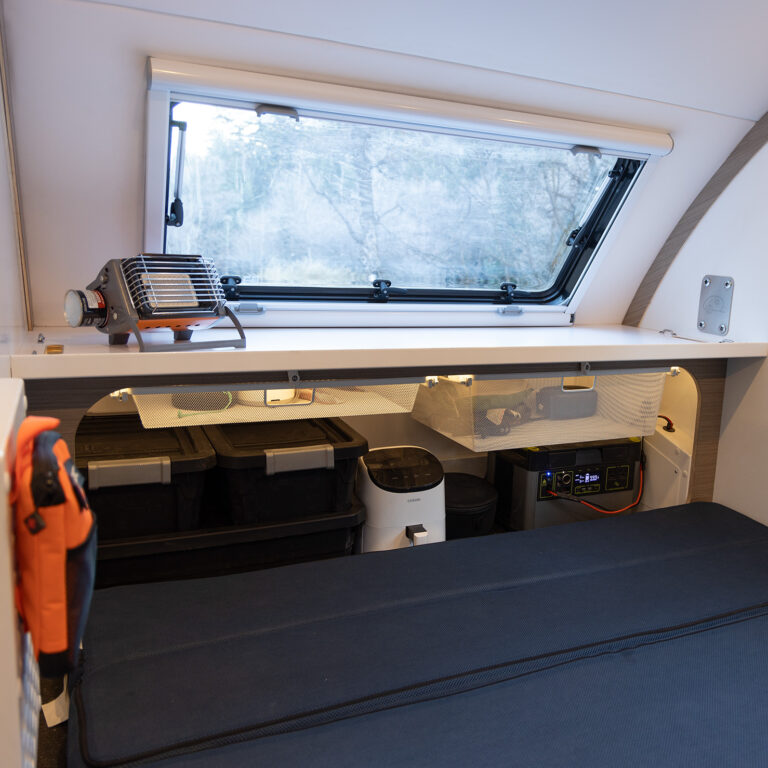
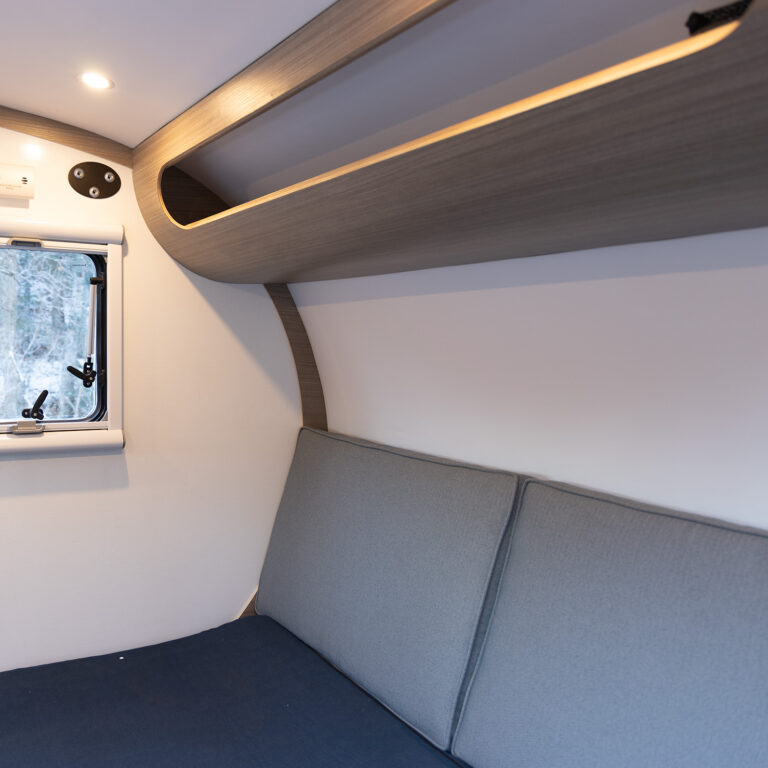
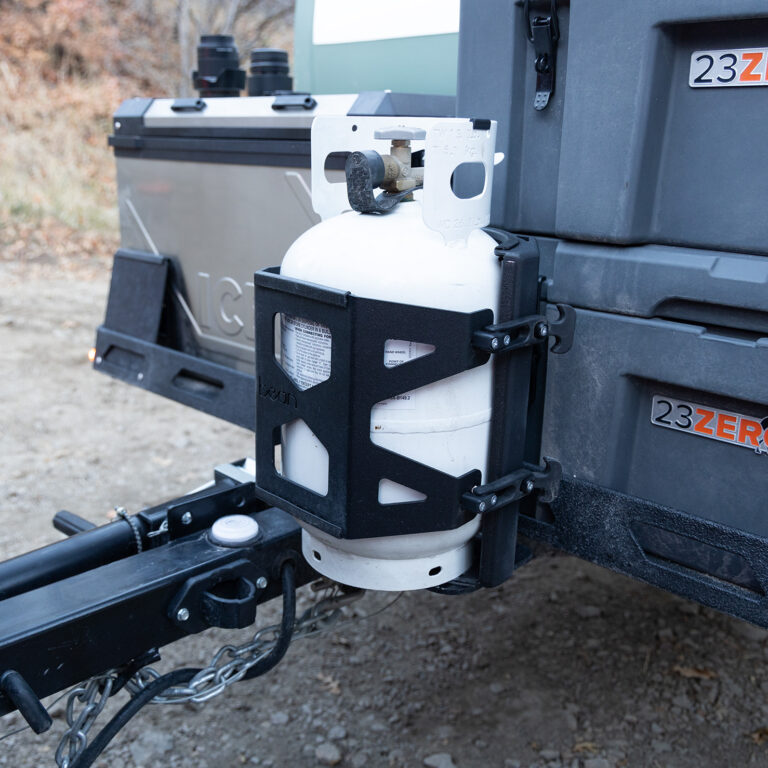
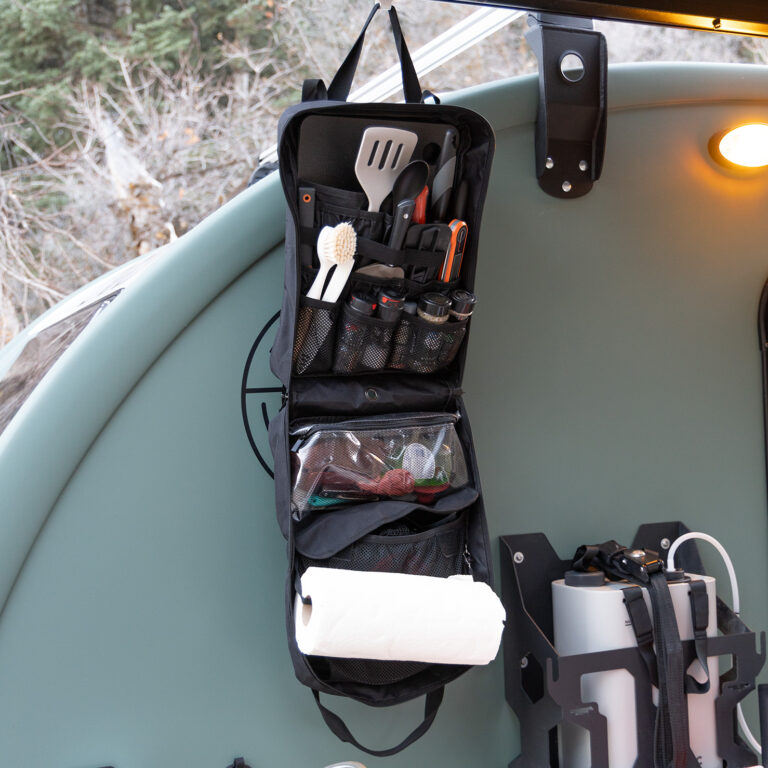
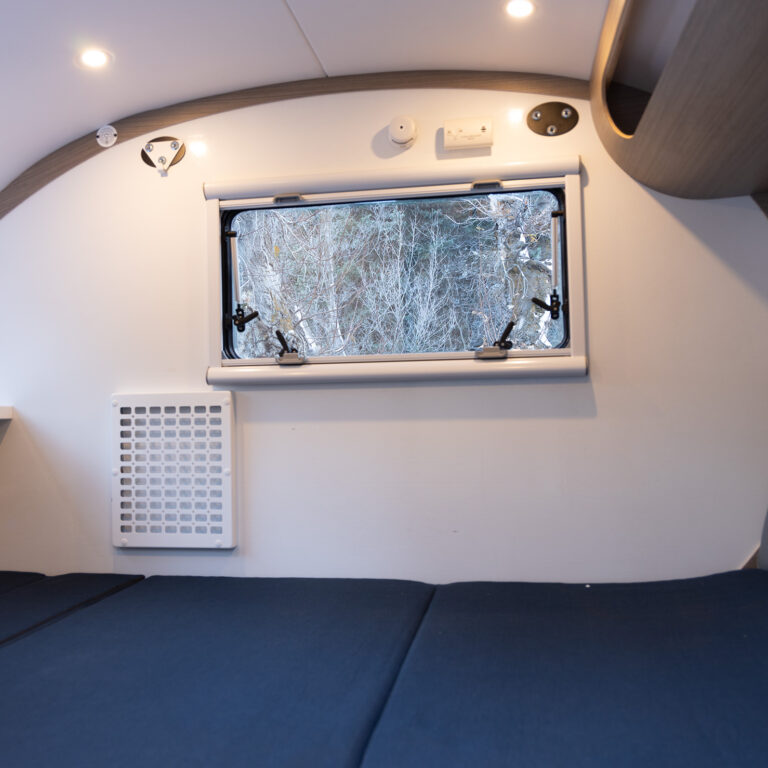
The Classic Bean
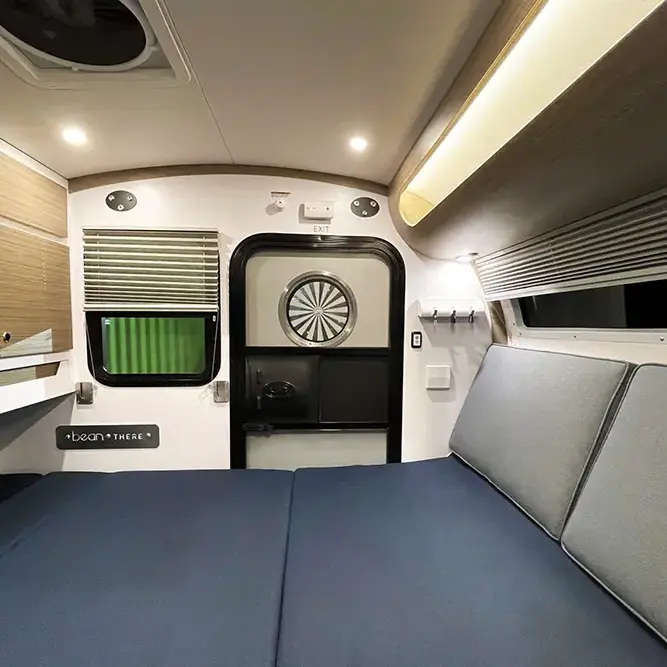
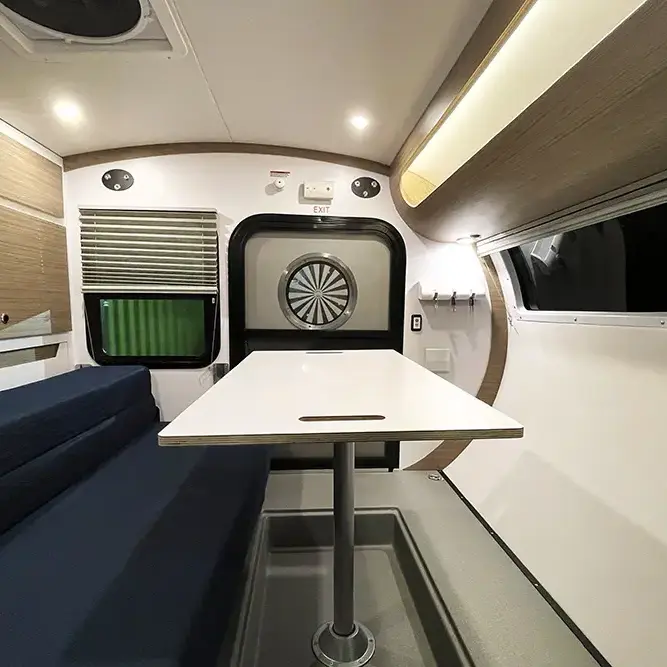
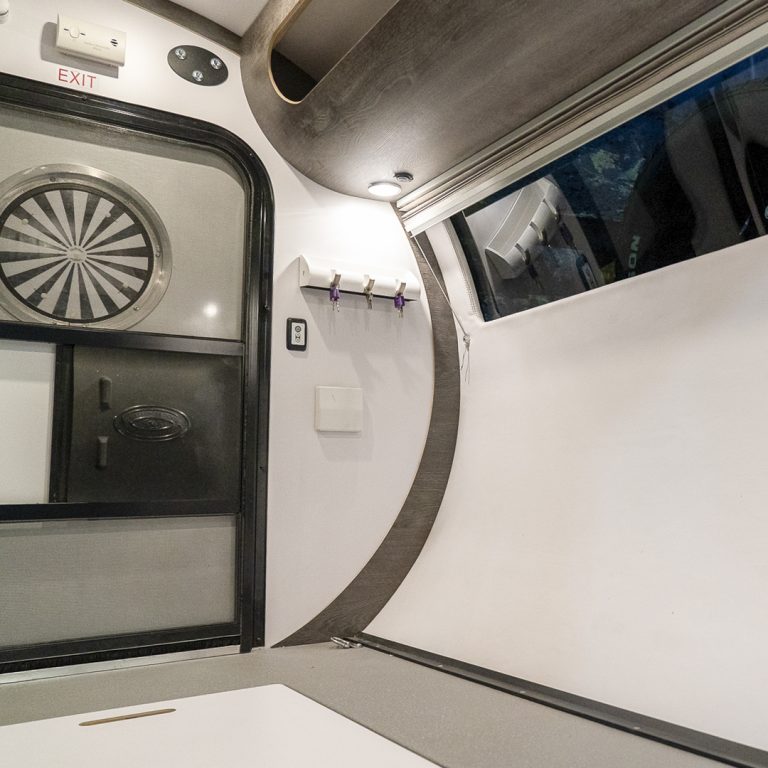
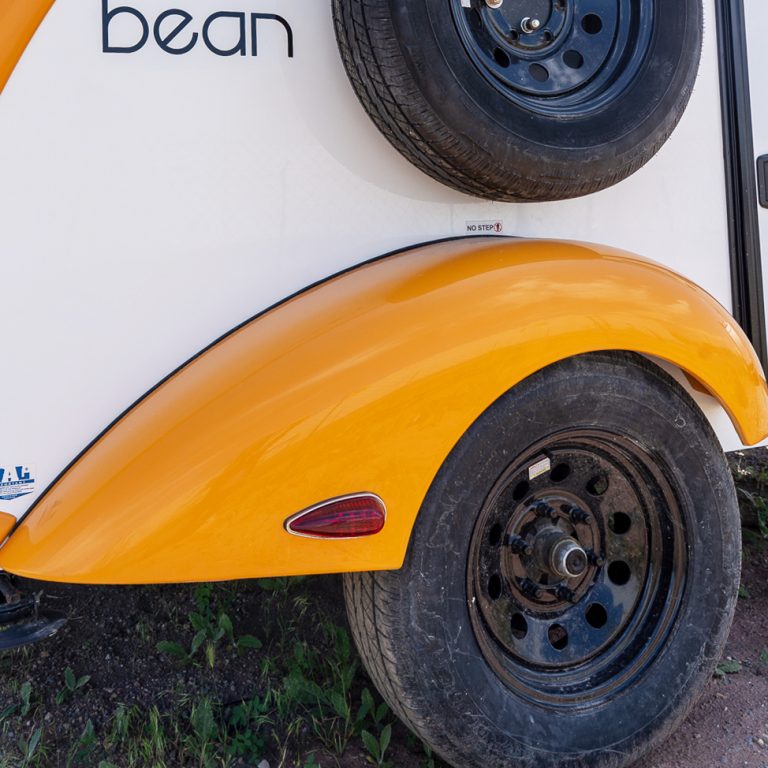
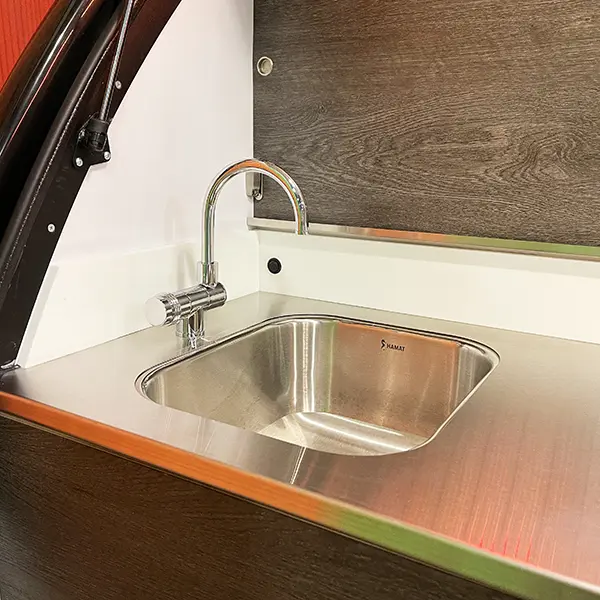
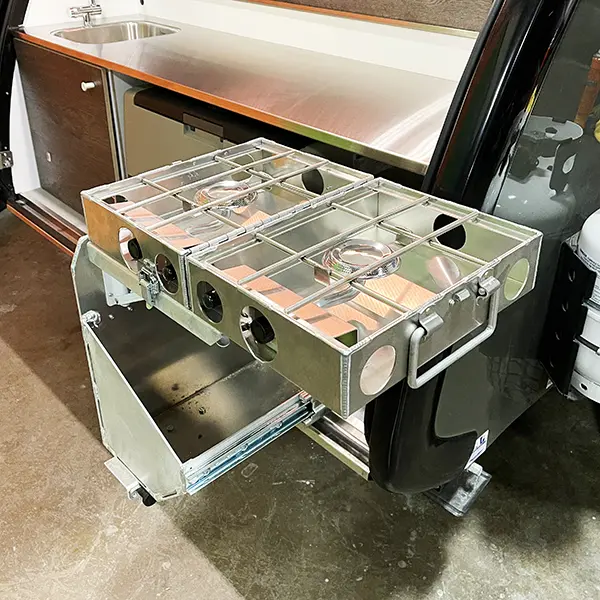
The Mean Bean
The Mean Bean is our off-road styled teardrop trailer model built for the rugged adventurer looking to go off the beaten path and take your camping trips to the next level with greater safety and comfort.The Mean Bean’s construction invites you to treat it a little “meaner” than most. Aside from the standard, seamless one-piece fiberglass shell and surprisingly spacious cabin, we’ve also Armadillo coated the fenders to make them durable enough to bear the brunt of your weight as you access your top rack. The Mean Bean might be a fighting machine, but it sure isn’t lean on comfort.
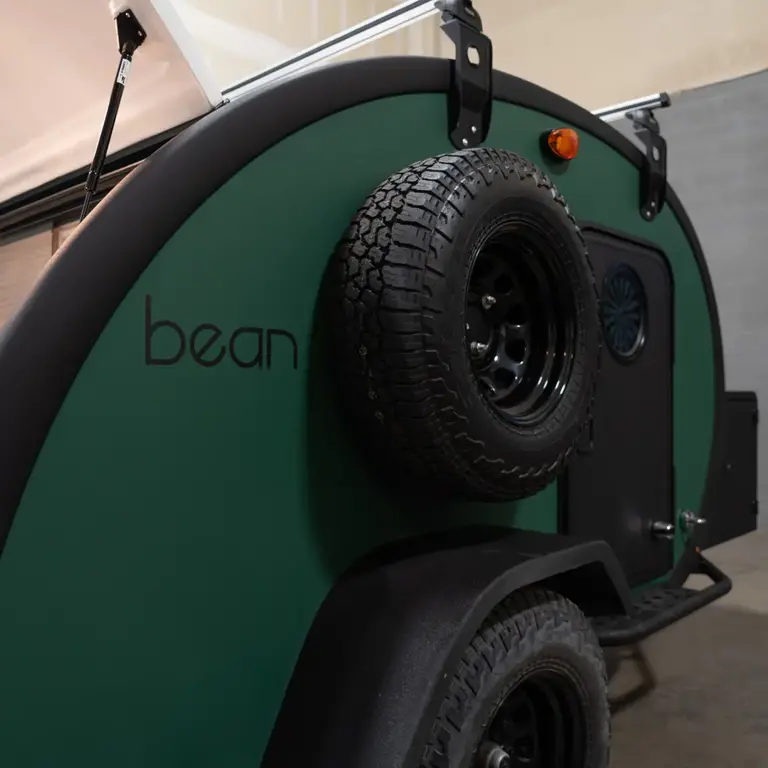
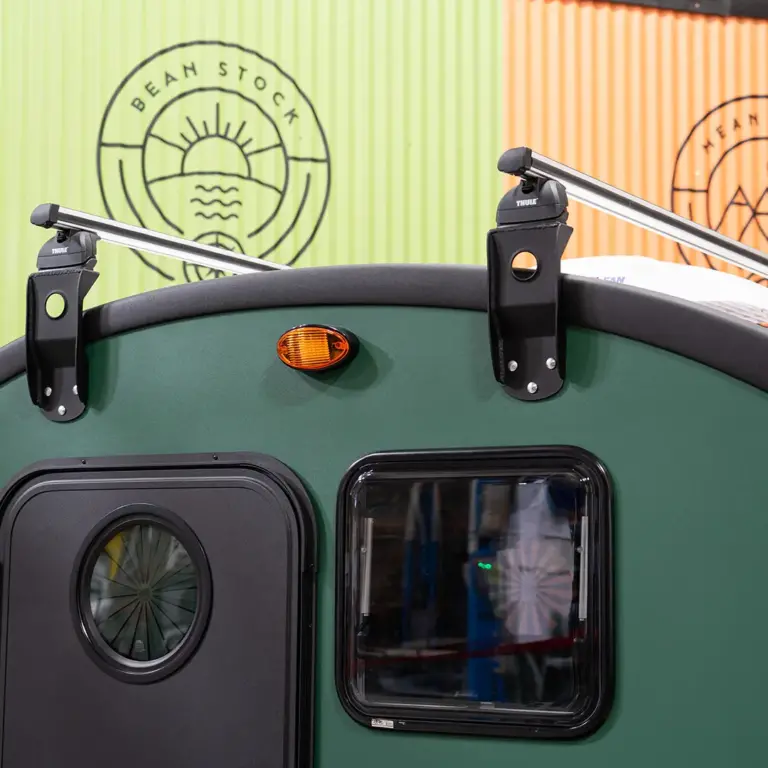
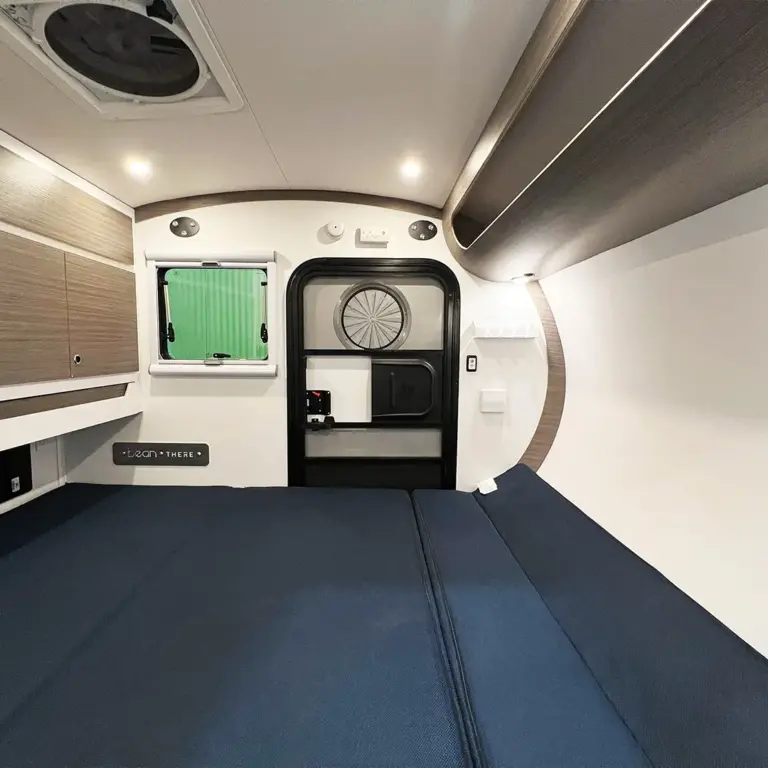
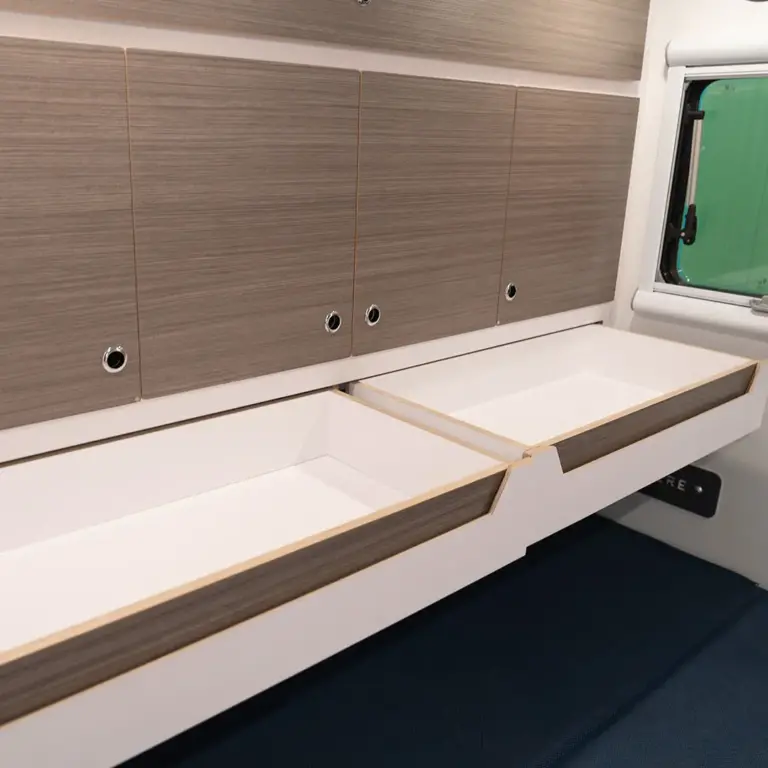
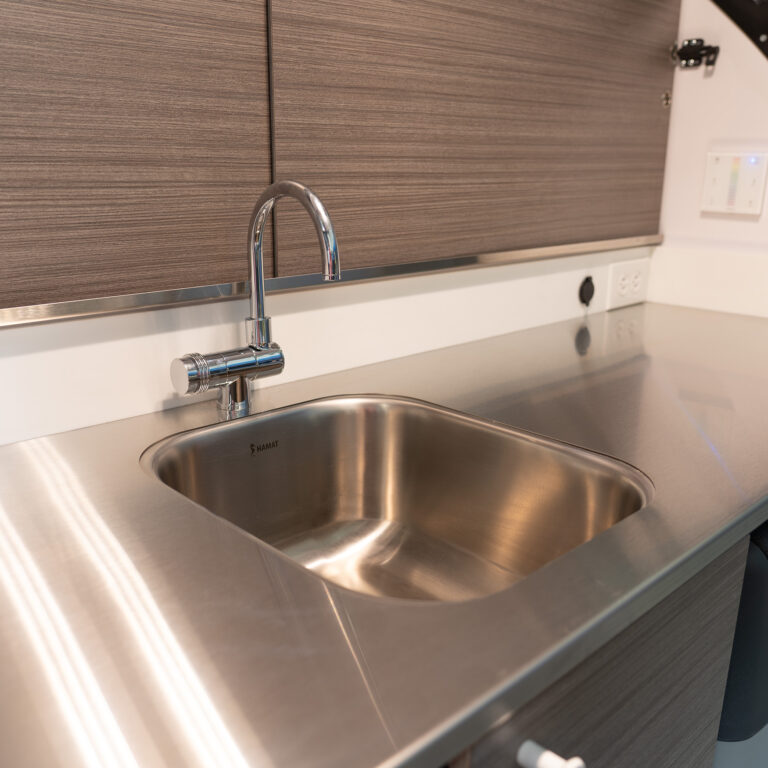
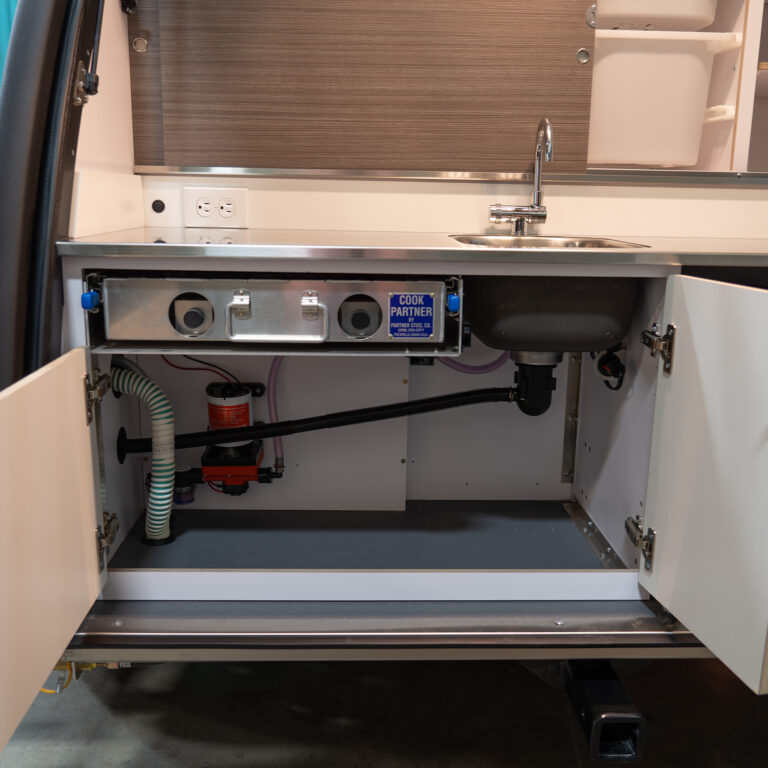
The Meaner Bean
For the overland adventurer looking to go where no trailer has gone before with greater safety and comfort. Among many modern features, this off-road rv trailer has 17″ of ground clearance, a Timbren independent suspension system, Armadillo coated stand-on fiberglass fenders and can be upgraded with other options like rock sliders in order to add additional protection and accessibility.

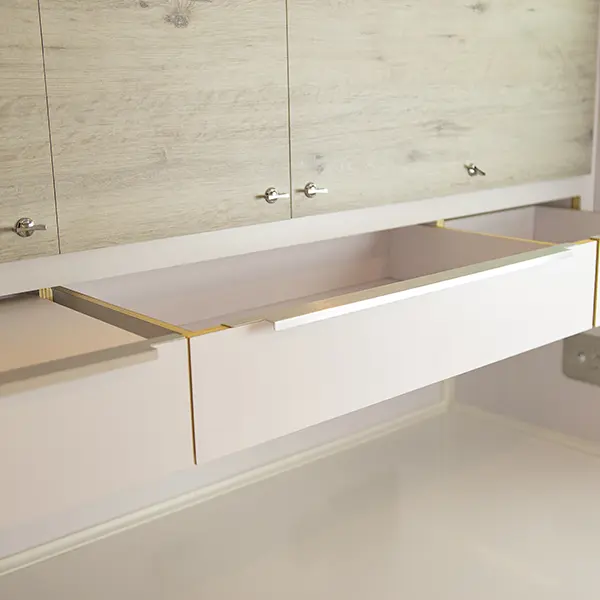


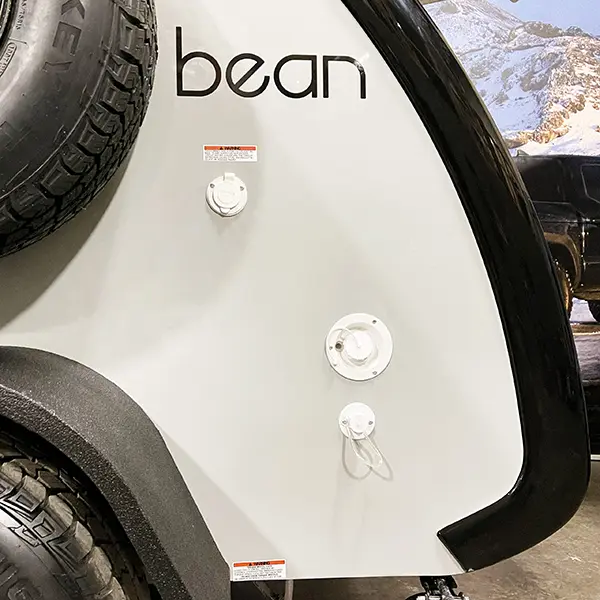
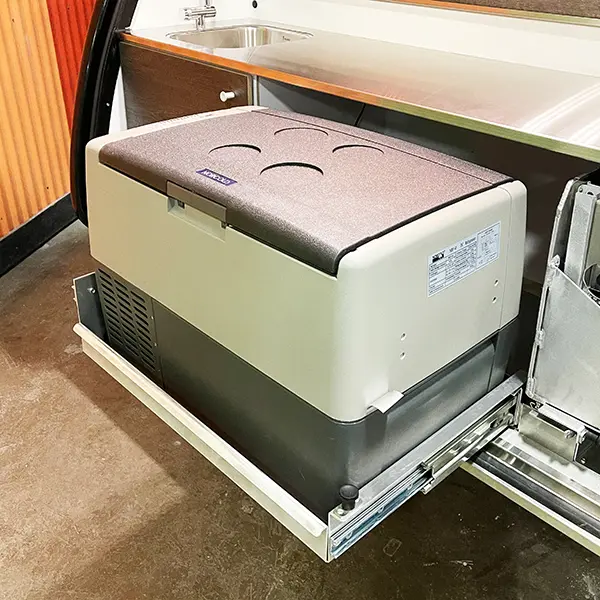
The Black Bean
Bean Stalker is a value-oriented trailer designed by experienced off-road campers for off grid camping. It has everything you need and nothing you don’t. This small camper will follow you anywhere you go! This minimalistic model has all the benefits that comes with a one-piece fiberglass shell, combined with a Timbren Independent suspension.
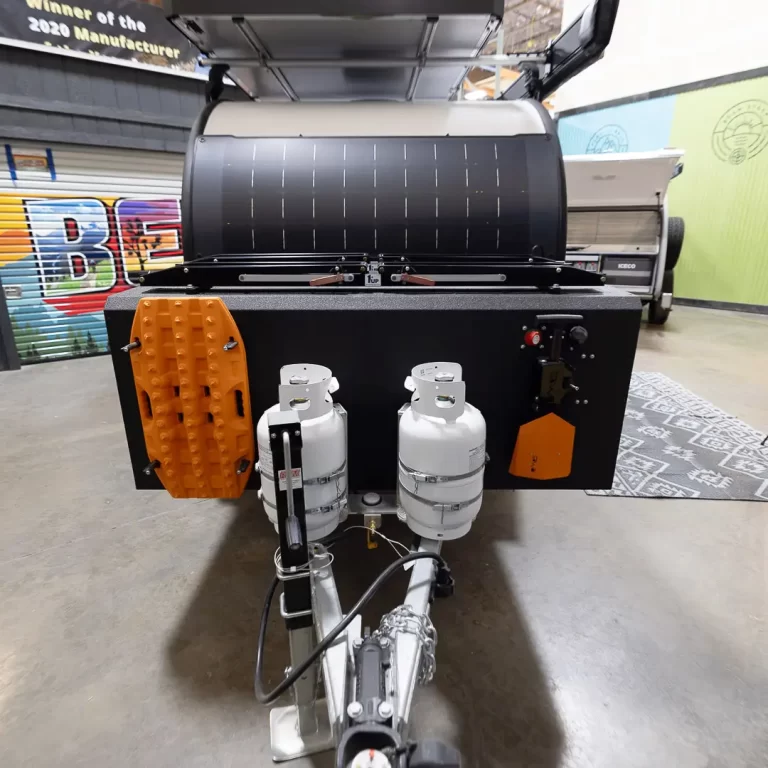
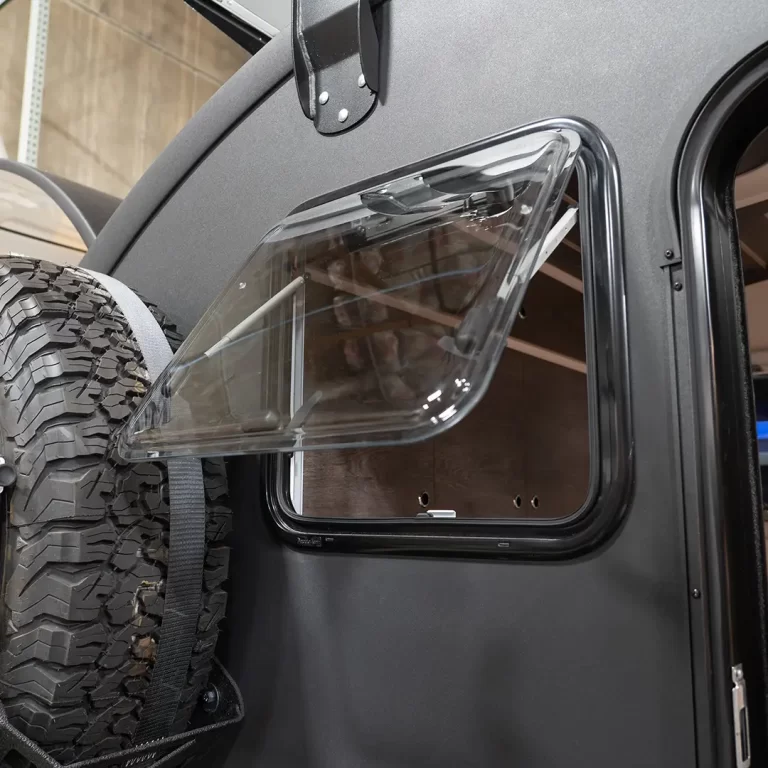
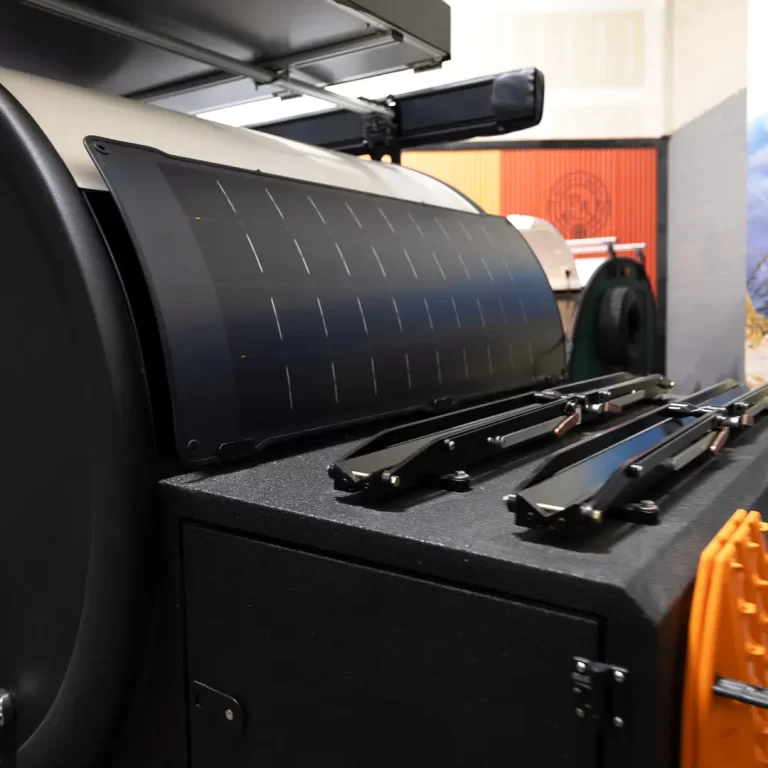
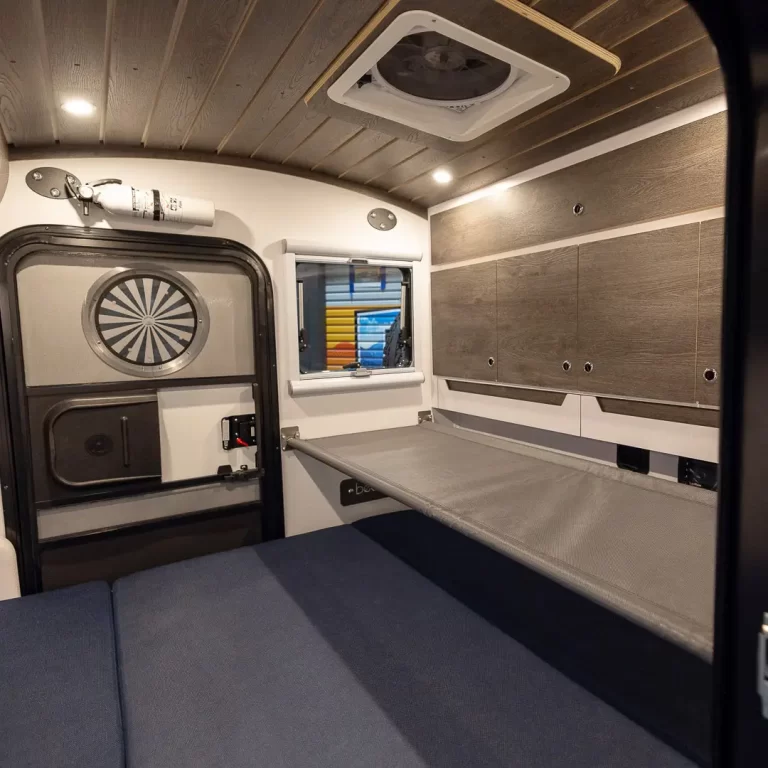
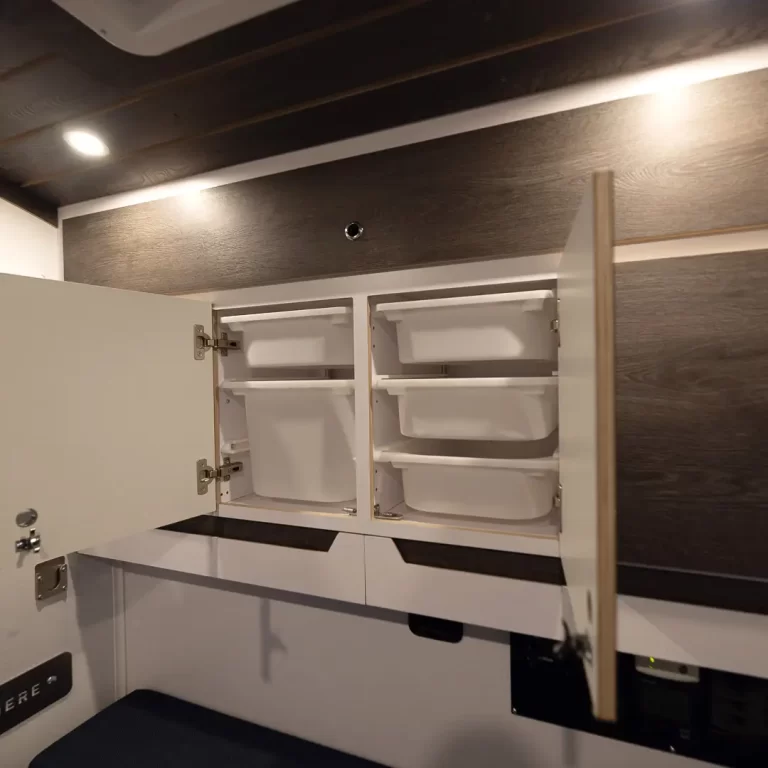
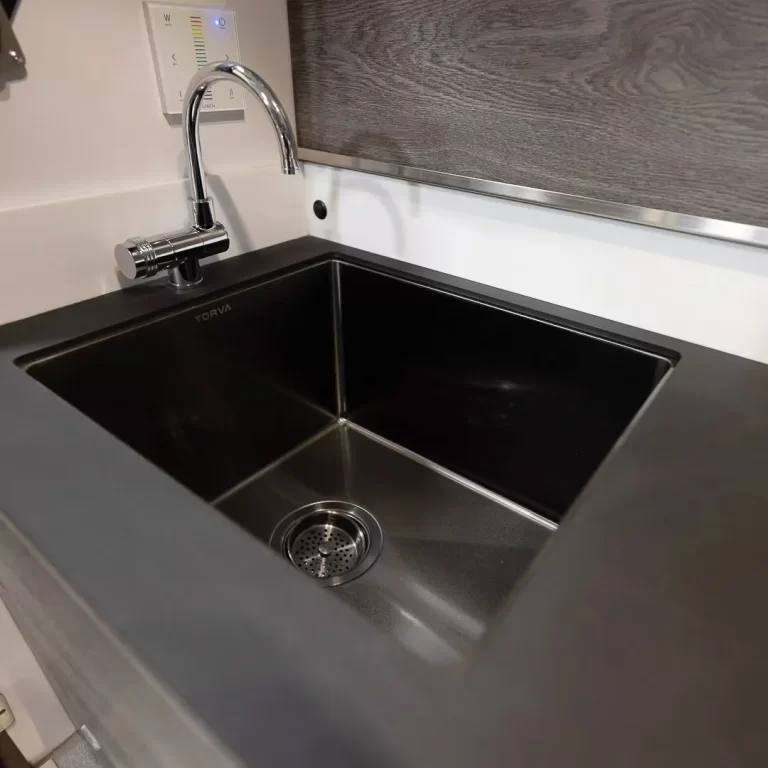
The Stalker Bean
Bean Stalker is a value-oriented trailer designed by experienced off-road campers for off grid camping. It has everything you need and nothing you don’t. This small camper will follow you anywhere you go! This minimalistic model has all the benefits that comes with a one-piece fiberglass shell, combined with a Timbren Independent suspension.
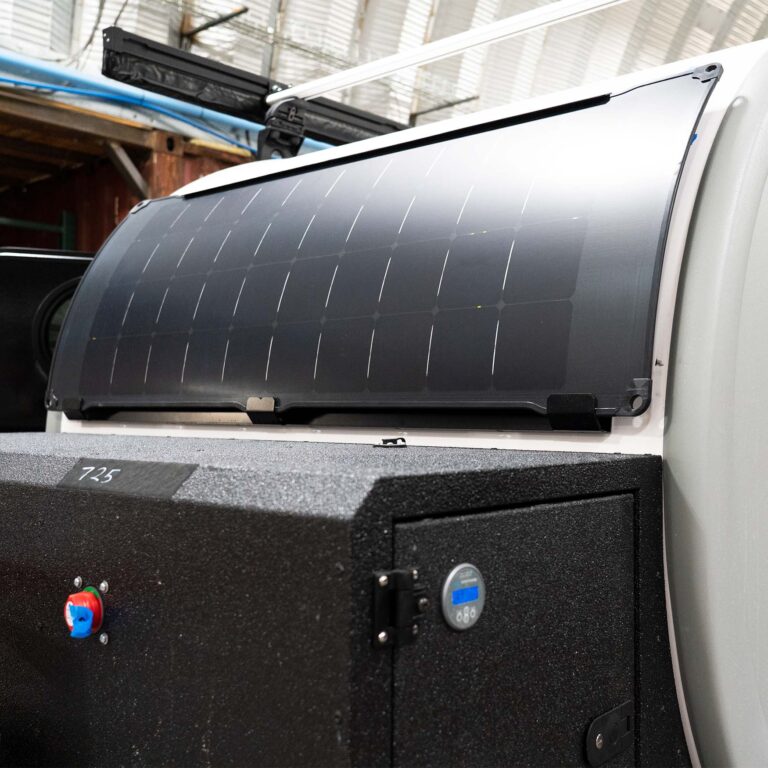
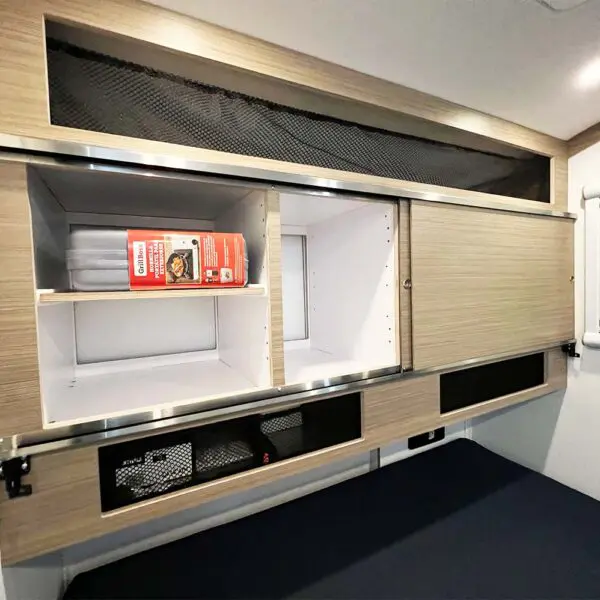
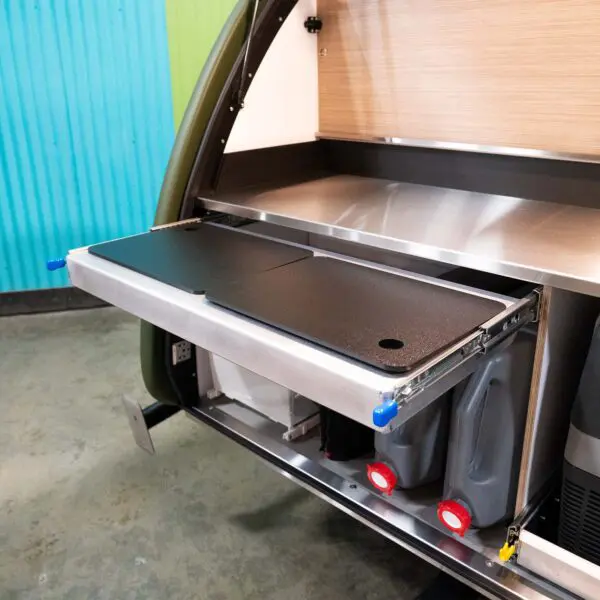
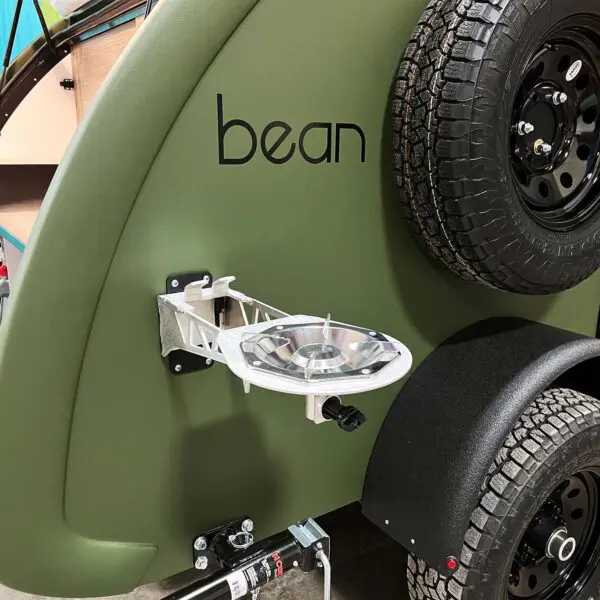
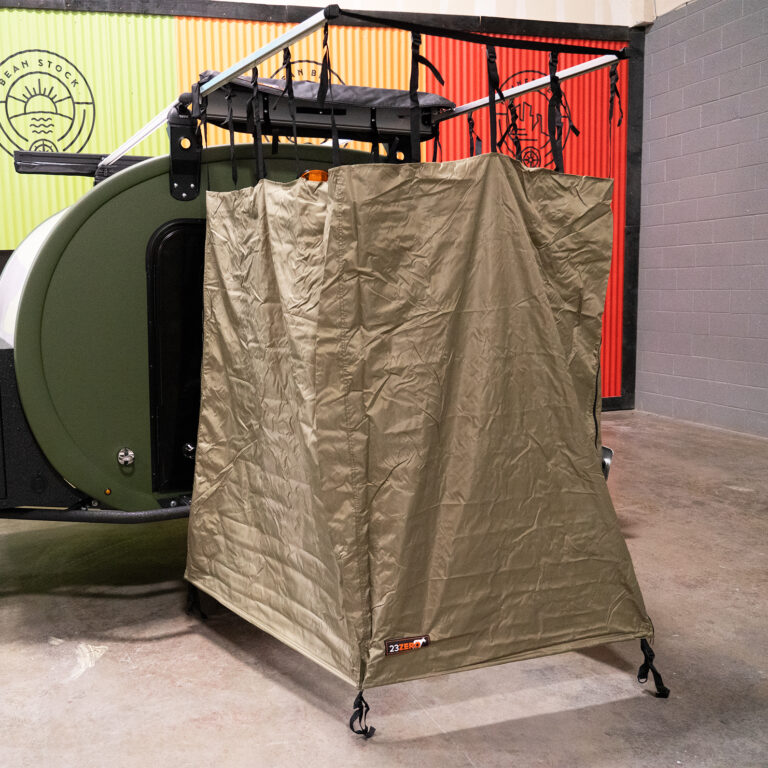
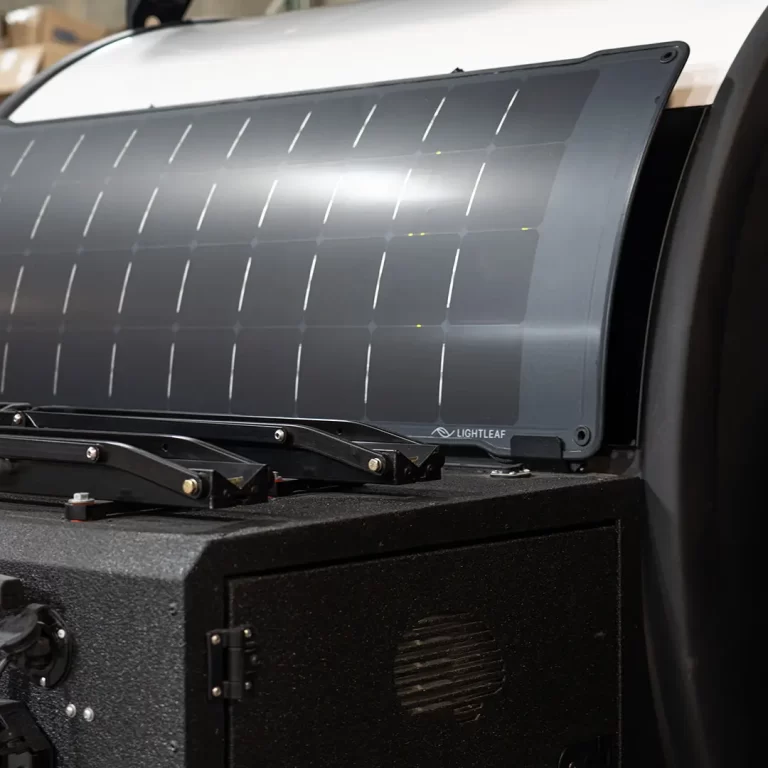
Bean Squared
This prototype model boasts an innovative squared-off design that maximizes interior space while keeping its footprint compact and agile. Inside, you’ll find a well-thought-out layout that seamlessly combines functionality and comfort. From a queen size cozy sleeping area with a comfortable mattress to a compact kitchenette equipped with all the essentials, this camper trailer is your home away from home.
Bean Trailer specs side by side
We like to allow for flexibility with each camper we build, this way our Bean owners end up with everything they need and nothing they don’t. To give you a clearer picture, check out our side by side comparisons chart to see what added features are necessary for you.
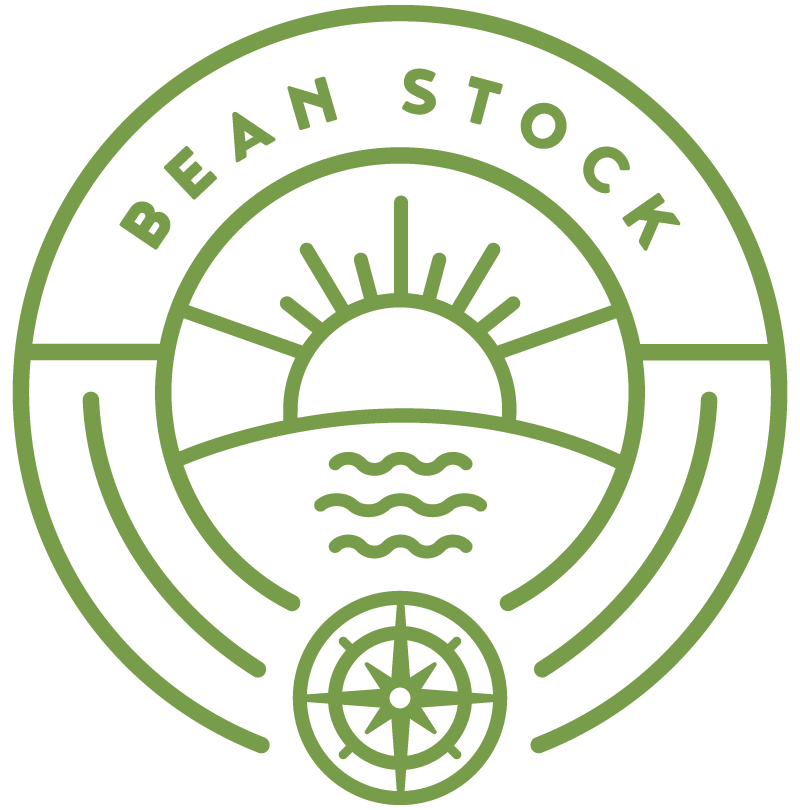
BEAN
STOCK
Bean Stock is affordable, lightweight, and capable. This trailer is made to enjoy the great outdoors without the hassle of tent camping.
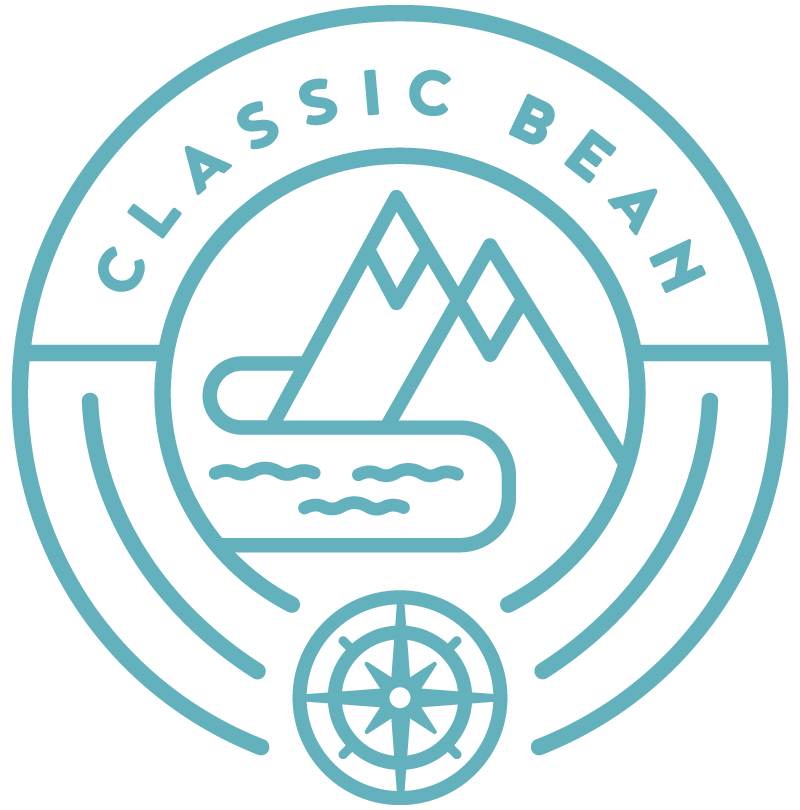
CLASSIC
BEAN
Road trips, tailgates, and beachside sunsets is what this model is all about! This durable roadster camper makes it easy to get out and explore.
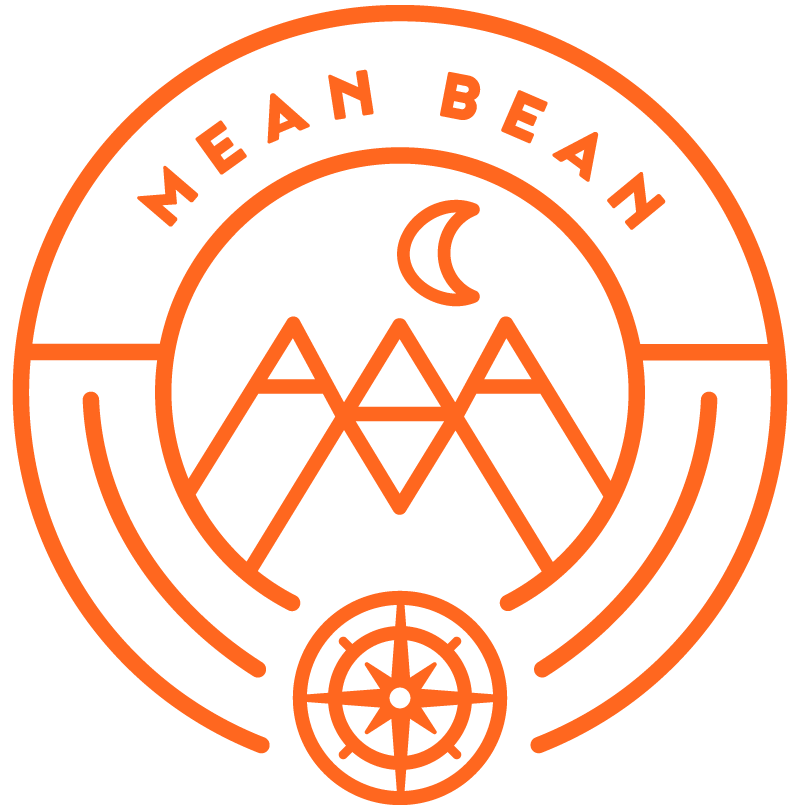
MEAN
BEAN
Mean Bean is for the rugged adventurer looking to go off-road and take their camping trips to the next level with greater safety and comfort.
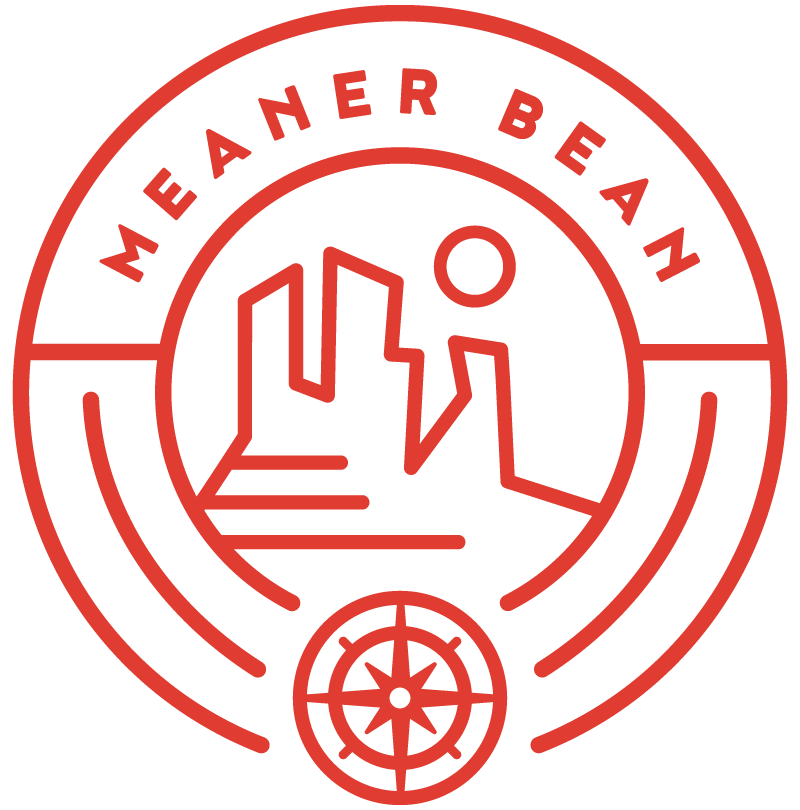
MEANER
BEAN
Meaner Bean offers a great balance between off-road capability and comfort. This model includes a Timbren 3500 lb. HD independent suspension.

BEAN
STALKER
Bean Stalker is a value-oriented trailer designed by experienced off road campers for off grid camping. It includes a Timbren 3500 lb. HD independent suspension.

BLACK
BEAN
Black Bean is our most premium and off-grid capable teardrop trailer yet! This trailer continues the tradition of functional design, and quality construction.
$15,999
$28,790
$28,290
$29,290
$31,575
$42,390
$20,150
$32,121
$32,572
$35,732
$33,550
$52,550
✖
✔
✔
✔
✖
✔
✔
✔
✔
✔
✔
✔
✔
✔
✔
✔
✔
✔
✔
✔
✔
✔
✔
✔
Aluminum
Fiberglass
Stand-on fiberglass
Stand-on fiberglass
Rounded steel
Stand-on fiberglass
83″
80″
81″
83″
81″
86″
84.5″
82″
83″
85″
86″
88″
7′ 2″
7′ 2″
7′ 4″
7′ 4″
7′ 4″
7′ 6″
14′ 1/4″
14′ 1/4″
14′ 1/4″
14′ 1/4″
14′ 1/4″
15′ 2″
17″
15″
15 1/2″
17″
17″
20″
205/75R15
205/75R15
235/75R15
235/75R15
215/75R15
30X9.50R15LT
60″ x 80″
60″ x 80″
60″ x 80″
60″ x 80″
60″ x 80″
60″ x 77″
54 1/2″
54 1/2″
54 1/2″
54 1/2″
54 1/2″
54 1/2″
58″ x 78″
58″ x 78″
58″ x 78″
58″ x 78″
58″ x 78″
58″ x 78″
4″
4″
4″
4″
4″
4″
✖
12.5″
12.5″
12.5″
12.5″
12.5″
Counter Height
28″ & 39″
39″
39 1/2″
41 1/2″
40 1/2″
44 1/2″
140 lbs
165 lbs
180 lbs
200 lbs
200 lbs
350 lbs
1175 lbs
1650 lbs
1850 lbs
2000 lbs
2000 lbs
2600 lbs
2000 lbs
3500 lbs
3500 lbs
3500 lbs
3500 lbs
3500 lbs
Driver-side wall mount
Passsenger-side wall mount
Passenger-side wall mount
Passenger-side wall mount
✖
Passenger-side wall mount
(1) Rear operable window
(1) Operable window in door
(1) Side operable window
(2) Port hole window in door
(1) Side operable window
(2) Port hole window in door
(1) Side operable window
(2) Port hole window in door
(1) Side operable window
(2) Port hole window in door
(2) Side operable window
(2) Port hole window in door
Removable 2″ ball coupler
Removable 2″ ball coupler
Removable 2″ ball coupler
Removable Max Coupler – fully articulating hitch
Removable Max Coupler – fully articulating hitch
Cruisemaster DO35 articulating pin coupler
18″
18″
18″
18″
18″
18″
10° pitched torsion axle
10° pitched torsion axle
10° pitched torsion axle
Timbren 3500 HD Independent suspension
(axle-less)
Timbren 3500 HD Independent suspension
(axle-less)
Timbren 3500 HD Independent suspension
(axle-less) with 2″ lift
1500 lbs
2700 lbs
2700 lbs
2700 lbs
2700 lbs
3500 lbs
OUR TRAILERS SIDE BY SIDE
We like to allow for flexibility with each camper we build, this way our Bean owners end up with everything they need and nothing they don’t. To give you a clear look at our models, check out our side by side comparisons chart to see what added features are necessary for you.
Don’t Go For Aluminum Just Yet
We adventure in the rugged deserts of Utah and we set out to build a beautiful teardrop trailer that can handle it generation after generation. Historically, fiberglass trailers have lasted longer, retained their value better and, more importantly, eliminated a seam at the roofline. We have aluminum and fiberglass capability, but fiberglass is better for Bean and that is why it is proudly featured.
Still not sure whether an aluminum or fiberglass trailer is the right choice for you? Take a look at our Q&A below outlining these differences.
ALUMINUM OR FIBERGLASS Q&A
Fiberglass is better than aluminum in every major attribute relevant to building a durable teardrop trailer.
We have been fabricating in aluminum for more than 18 years and fabricate 3 times as many aluminum products as we do fiberglass products (see our associate company sterlingatm.com).
If aluminum were a better material for a trailer, it would be easier and cheaper for us to build Bean Trailer that way. We believe in using the right material for the right application and that material is fiberglass for Bean.
No, we are comparing aluminum to sculpted fiberglass that is pulled from a mold in the shape of the trailer. There is a huge advantage in thickness, strength and durability to a molded shell compared to a thin sheet material in fiberglass or aluminum.
It is easier. There are many times more metal shops than fiberglass shops so that expertise is more available and the barriers to entry are lower. This means you do not need as much expertise and investment in equipment to start fabricating in aluminum, so that is why it is used. In fact, it is so much easier to build in metal that the original teardrops were built at home using surplus aluminum from WWII bombers.
No, fiberglass materials are more expensive, and it requires a large investment in expertise and set up.
With the exception of Airstream, molded fiberglass trailers such as Casita, Oliver, Scamp and Bean retain their value better than aluminum trailers. See https://campergrid.com/fiberglass-vs-aluminum-rv/
In fact, some Bean owners have been able to sell their Beans for what they bought them for or more. The average fiberglass trailer is 10-12 years old, and it will last much longer with minor care and maintenance.
Fiberglass. Fiberglass can be laminated and shaped to be structural without additional support. That is why our one-piece shell adds significant strength to the overall structure. The aluminum sheets typically used on teardrop trailers are flimsy and do not have the inherent structural strength of a molded fiberglass shell.
Fiberglass. Fiberglass will flex and not dent under significant impact. (see our YouTube videos where we attack Bean with a sledgehammer). Aluminum dents very easily. That is why aluminum trailers are notorious for hail damage.
This one is easy, fiberglass. Aluminum is a great conductor of heat and cold. It is so good it is used in heat sinks to quickly transfer heat. In fact, you would be hard pressed to find a better exterior material to transfer heat and cold into your trailer than aluminum. The exception is clear anodized aluminum like an Airstream which reflects heat with its mirrored finish.
Fiberglass is a great insulator and that is why it is used to make insulation! In fact, you probably have fiberglass insulation in your home keeping you warm in the winter and cool in the summer. Do you want an exterior skin that inherently transfers heat and cold into your trailer or insulates from it?
When it comes to design flexibility and artistry, fiberglass wins by a long shot. We could not have sculpted Bean to win a design award if we fabricated it in aluminum. More importantly, you can mold fiberglass into a strong structural shape like the Bean dome with no roof seams to leak water.
Without extremely expensive stamping machines or artisans, aluminum is limited to how you can fold it or bend it. That typically means you will have a seam where the roof and side walls meet and that means risking exposure to roof leaks
You guessed it, fiberglass! The non-porous surface of aluminum is a terrible surface to bond paint. That is why you must introduce primers, scuffing and etching to get them to bond. Fiberglass and paint are molecularly similar, so they love each other and form a much stronger bond. Better paint adhesion means less risk of paint chips or even peeling. This is particularly important when you consider all the debris your tires are going to fling at your trailer’s paint job!
The base material (aluminum or fiberglass) has nothing to do with the durability of the finish. The durability of the finish has everything to do with the quality of the paints and gelcoats you use. When it comes to UV resistance, you get what you pay for. We use expensive automotive grade paints and the best UV resistant marine grade gelcoats on Bean.
Aluminum is good, but fiberglass is better. That is why so many industrial storage tanks are made of fiberglass.
This one is a tie. We repair both the same way with typical bodywork (Bondo and paint). Most body shops can repair fiberglass damage to your trailer and if they will not, a boat shop can easily do so.
Aluminum is very abundant but fiberglass is even more so. From this standpoint, fiberglass is sustainable because the main ingredient in fiberglass is glass and glass is made from sand, an abundant, natural, non-depleting resource. The more durable a trailer, the longer it will last and the less need for disposal. Less disposal means less waste and more sustainability. Fiberglass trailers last longer than aluminum trailers.
Fiberglass is known for its very low embodied energy – the total energy required to produce a product from the raw materials stage through the delivery of fiberglass products. In comparison, aluminum extraction requires an excessive amount of electricity. The joke about aluminum is that it is “congealed electricity” https://theconversation.com/the-trouble-with-aluminium-7245 . Shockingly, 3% of the world’s entire energy supply goes to aluminum extractions!
Aluminum expands and contracts more with temperature changes and, yes, you should care if durability is important to you in a trailer. Think about it. Your trailer can experience changes in temperature that can range from below zero to plus 150 degrees when you account for radiant heat. The materials of your trailer grow and shrink with those fluctuations and those cycles create stresses on fasteners, seals, and joints.
Fiberglass has one of the lowest rates (coefficients) of thermal expansion so it minimizes that stress. Aluminum has one of the highest coefficients of thermal expansion so it accentuates those stresses. Do you want a trailer with fewer seams (one-piece shell) and a material that minimizes the stresses of thermal expansion or one with more seams, more growth, and more stress with temperature changes?
Get in a bean
Now that you know more about aluminum vs fiberglass, you can make a more informed decision on what kind of trailer you want to get the most bang for your buck. And if that decision leads you to Bean, you can start designing your own Bean right now!
